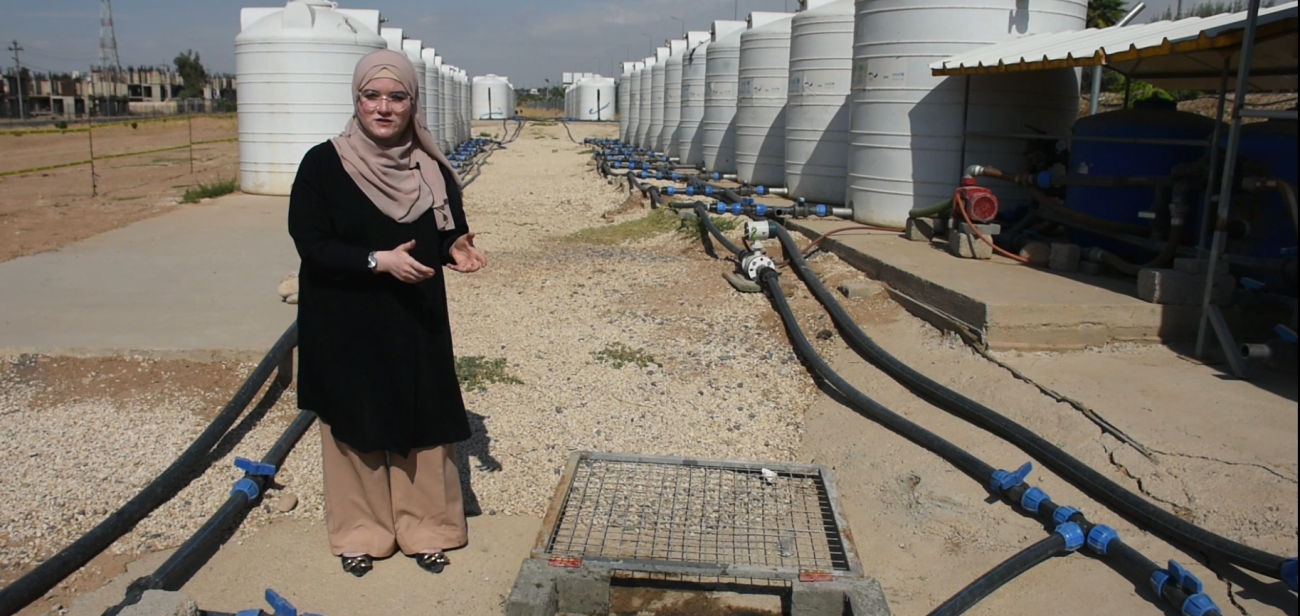Story by Celia Thompson Dadson / Video by Salar Brifkani (UNAMI SCPIO)
Erbil, Iraq – If wastewater is treated and reused for irrigation rather than being released into the environment, communities could be able to conserve fresh water and better manage such a precious resource to irrigate crops as well as address issues of water pollution.
Earlier this year, the Hasar Organization implemented a wastewater treatment project for recycling domestic and sewage waste through a treatment unit capable of producing over 300 cubic meters of water a day that currently irrigates 300,000 Oak trees in Erbil. Shayma Faramarz, the Water Resources and Irrigation Manager at Hasar, explains:
This community action jointly initiated by UNICEF, the Kurdistan Regional Government and Hasar comes at a time when Iraq is taking climate action to overcome its challenge in achieving Sustainable Development Goal (SDG) 6: "Clean water and sanitation for all by 2030”, as it already ranks the 5th most impacted in the world by climate and water challenges.
Considering water to be pivotal to its development and moreover a fundamental human right for all people, Ms. Faramarz explained in an interview that local and cost-effective methods that communities can adapt for sustainable water irrigation and conservation are some of the strategies needed in Iraq to address its water challenges.
For a sustainable end, one of the actions to take could be to invest in cost-effective and low maintenance projects that are doable for communities which will reduce the water stress, and reverse desertification and deforestation for a healthy living now and for the generations to come.




